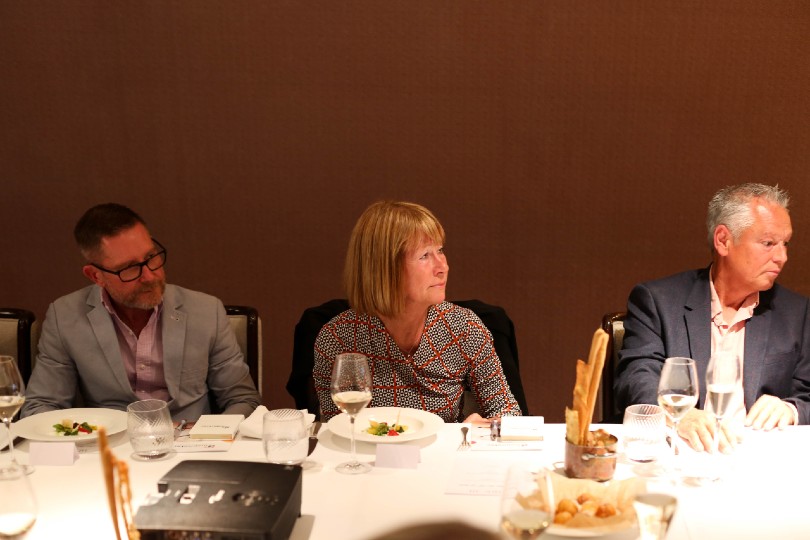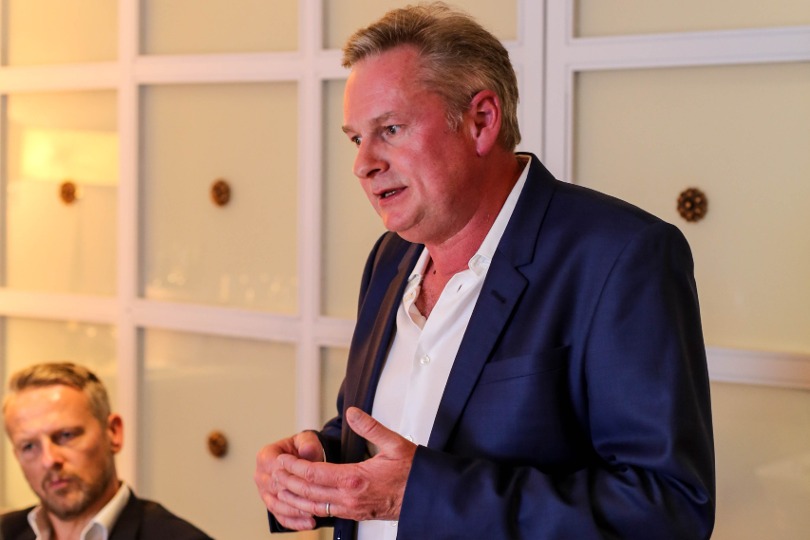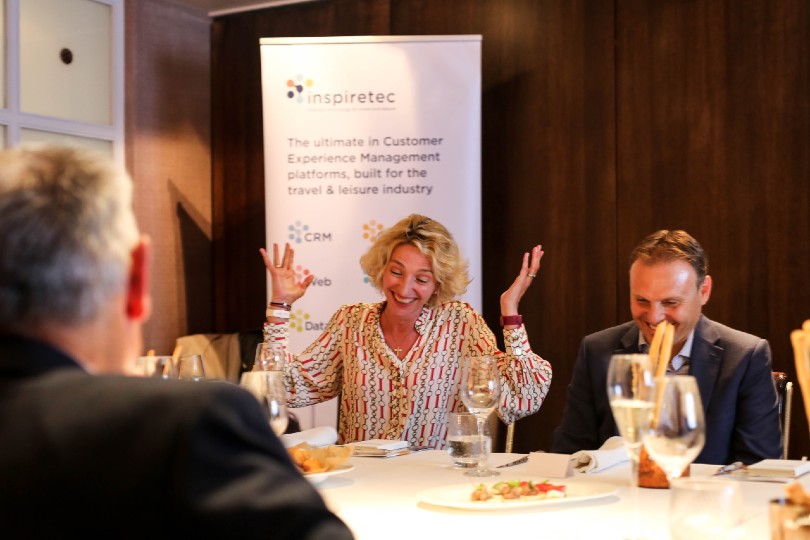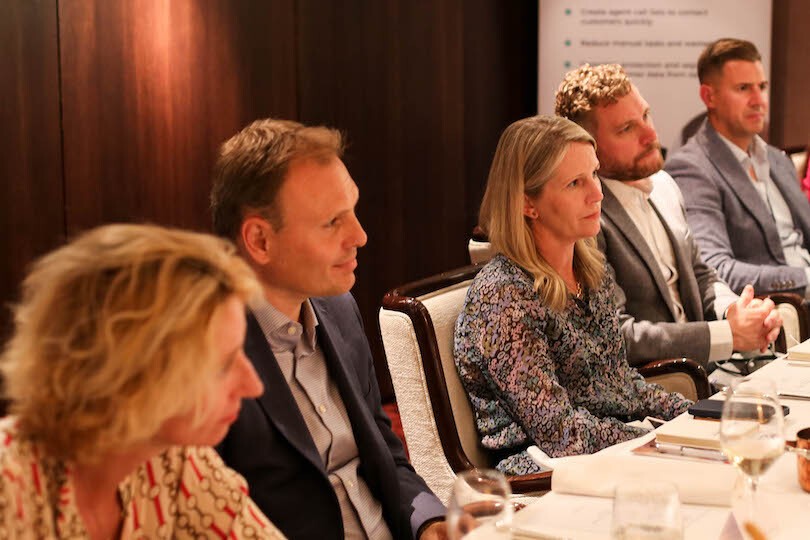It’s time for travel agents to shine
 Gary Noakes
Gary Noakes“Putting customer service at the heart of travel” was the theme of a CEO roundtable hosted by TTG and Inspiretec at Sartoria in London.
Flight cancellations and consolidations, baggage delays and queues at airports have all heaped woe on the trade during what should be a bumper summer.
Miles Morgan of Miles Morgan Travel summed up the predicament: “The front end of the machine – the sales end – is very strong. The challenge is that the back end isn’t. There’s a hell of a lot of programme and flight changes. We’re considering for the first time ever that we allocate people just to do this stuff. It’s a challenge when you have suppliers that maybe take two hours or more to answer the phone.
“If there’s a shortage of baggage handlers at Manchester, that affects everything. Until recruitment is sorted, pretty much throughout the whole industry, whether salespeople or baggage handlers, this issue is not going away.”
Hays Travel chair Dame Irene Hays said the situation had led her to act. “The most important thing is that we look after our people at the front end, so we’ve taken the decision to open shops one-and-a-half hours later and close half an hour earlier to give people time.
“There was an outpouring of relief that we’d acknowledged this. It’s about focusing on the wellbeing of our people because they’ve already had a very, very difficult two years.”
Hays said some suppliers were contacting customers about changes “before they tell us”, adding: “The worst possible thing is that we are combative; that’s not in anyone’s interests, but there has to be some robust conversations with suppliers.”

Advantage Travel Partnership head of commercial John Sullivan said some members had reallocated staff to sort changes, but said staffing levels were an issue.
“The Covid hangover means there’s a shortage of staff, even overseas, and people want help and advice.”
Sullivan said many new travel brands were proved to be over-reliant on technology when Covid happened.
“Not having that public face or headcount has been a real barrier to them. Covid has put the focus back on agents and put us in a good place, but the people who stayed in travel are still feeling pain; we have to ensure they remember how much fun it is.”
HUMAN APPROACH
Newmarket Holidays chief executive Niel Alobaidi acknowledged some customers “were still angry with us”, but felt the setbacks were temporary. “We have to accept this is something we will need to work hard at for the next three or four months. I’m very hopeful things will start to get controllable. For every negative story, we have five, maybe 10 positive ones.”
However, dnata Travel Group chief executive Ailsa Pollard cautioned: “Travel is more emotional, so when you mess up, the mental health of the customer is affected. The industry as a whole must sort out customer service. I don’t want to work in an industry where customer confidence is at an all-time low.”
Inspiretec chief executive Simon Powell agreed staffing was a big issue, but said technology had a role to play. “I think you can automate a certain amount of the problems we face,” he said.
He added: “We’re interconnected cogs. From a tech perspective, there’s a lot you can do to make sure you get the message across before the airline tells the client [about a delay]. The industry has never focused on it, but there’s never been a better time to try and address some of these issues.”
Steve Morrish, group managing director, Imagine Cruising, added: “Technology can definitely be a bridge to the future of understanding how the customer wants to be treated.”
He said technology had to be firmly in the background, not detracting from the human approach. “It’s a supporting mechanism, but it has to be something the customer is not aware of.”
Powell added: “It’s really important to take advantage of the situation in a positive way. Twenty years ago, you were a transactional business or a relationship business. That’s not the case today, it’s almost like a reset point. Clients want to be dealt with in the way they wish – not how we wish to deal with them.”
PERSONAL TOUCH
While the panel agreed Covid had shown back-office technology needed to be addressed, it also highlighted how less tech-savvy consumers needed a hand.
Morgan said: “Not every customer is comfortable with technology. During the pandemic we had people begging for help, including many that had not booked with us. We will reap the benefits for years to come.”
The panel agreed personal touch was winning. The statistics proved this, said Hays. “If you compare with 2019, combining Hays and Thomas Cook, 19% of customers were new. Today it’s 53%. They’re coming from online agents – we know this, because we ask. If ever there was a time for people to shine because of their personalities and training, that time is now. Boy, are they shining, but boy are they tired. I could weep with the exceptional customer service they are showing every day.”
The role of technology in supporting and enhancing that service has never been clearer.
For more on how Inspiretec can support customer service in travel, visit inspiretec.com
The panel
- Simon Powell, chief executive, Inspiretec
- Niel Alobaidi, chief executive, Newmarket Holidays
- Dame Irene Hays, chair, Hays Travel
- Steve Morrish, group managing director, Imagine Cruising
- Ailsa Pollard, chief executive, dnata Travel Group
- Lucia Rowe, managing director, A-Rosa
- John Sullivan, head of commercial, Advantage Travel Partnership
- Miles Morgan, managing director, Miles Morgan Travel
- Maria Heckel, marketing director, Inspiretec
- Richard Baker, chief commercial officer, Inspiretec
Sign up for weekday travel news and analysis straight to your inbox

Gary Noakes
Supplier Directory
Find contacts for 260+ travel suppliers. Type name, company or destination.


















